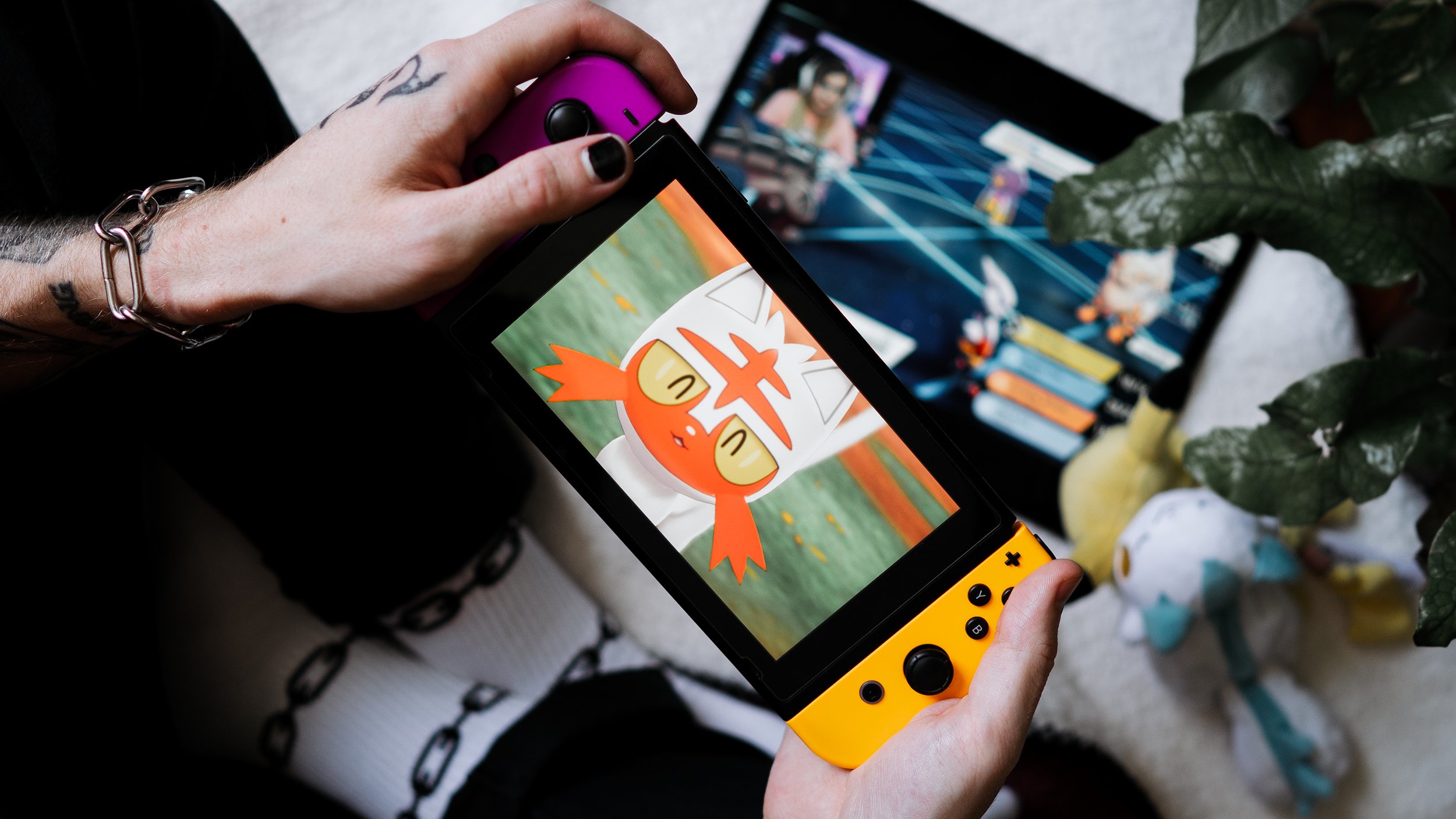
What do You do When Time is Running Out?
7min 7sec read
A guide to approaching crunch time before a tournament.
Written by Wolfe Glick
Teambuilding / Getting Ready For Battles
For VGC tournaments, you’ll “lock” the six Pokémon on your team at the start of the tournament, and you won’t be able to make any changes to them until the tournament ends. When a big tournament nears, the day when teams are locked can loom over you. As you approach team lock, you may realize that you don’t feel good about locking in your team, and if this tournament is high stakes or otherwise means a lot to you, that may mean that the approaching deadline comes alongside panic, anxiety, or other unpleasant feelings.
If this sounds like you, or you could see the above paragraph applying to you in the future, that’s alright. Firstly, if you’re stressing out, you are not alone. It’s natural to feel pressured in these situations, and it will happen to every player during their VGC career. In fact, if it’s right before a tournament, many players probably feel the same way you do at this very moment.
Here’s some advice based on how we make these situations less stressful for ourselves.
Remain Calm
Keeping a cool head will help you make the most out of the time before the tournament. If you’re not in love with the team that you thought you were going to bring to this event, there’s a real chance that you may have to accept its flaws or rework major parts of your team. Teambuilding involves making a lot of decisions, and if you have a clear mind, you’ll be more objective and confident in the decisions that you’ll make before the tournament begins. You know yourself better than we do– what headspace do you need to be in to make decisions that you feel comfortable with?
Consider How Much Time You Have Left
How much time does it take you to prepare for a tournament? Here’s a checklist of the things you’ll need to do before the tournament, in order:
Build or find a team
Finalize EV spreads, moves, and items
Get ladder / best of 3 practice – iterate on team if necessary
Catch or breed the Pokémon that you’ll need in game
Finalize the Pokémon in game (EVs, items, Hyper Training, etc)
Fill out team sheet
Double-check all stats on the sheet vs. EVs/IVs vs. in game
Think about how much time you’ll need to do each of the above things, and then think about when you’ll be able to get them done before the tournament. Based on how much time you have left before the tournament begins (factoring in work, school, family, etc), and how much you need to change your team, you may be fine– or you may have to abbreviate your schedule.
Focus on the Format’s Fundamentals
When the clock is ticking down, it’s easy to get wound up about all of the different teams and Pokémon that you might play against. When this happens, it's easy to start thinking in circles and feel increasingly backed into a corner, especially with regards to your options for team choice. You may feel like you have to have a counter for every single Pokémon or archetype out there.
Our advice in this situation is to take a step back and break what you know about the format and metagame down into simple, concrete statements. What are the strongest Pokémon? Are any of them so powerful that you couldn’t see yourself not using them or having a plan against them? What teams do you think you’ll play against most frequently? From there, you’ll be able to make a strong, focused game plan going into the tournament– rather than trying to do too much at once.
There are No Magic Bullets
Especially if you’ve been focusing on a format, metagame, or several popular teams for a long time, you might start to look frantically for one Pokémon or combination of Pokémon that is going to answer all of the threats at once. These Pokémon rarely exist. Pokémon are not strong because they are popular, but they are often popular because they are strong– and a set of the format’s most popular Pokémon can often have a variety of strengths that isn’t possible to cover for at a teambuilding level. Rather than searching for a magic answer that accounts for everything, focus more on finding Pokémon that have strengths that you believe in, and know which of the popular Pokémon you’re taking on weaknesses to.
EXAMPLE
Going into the North American Internationals in 2019, Aaron Traylor and I struggled to find a team we liked until closer to the event than we would have preferred. We managed to build a team that fit a lot of our criteria, but one of the holes that we identified was the teams absolutely abysmal Ferrothorn matchup. We could have weakened our Xerneas matchup by dropping Roar for Flare Blitz on our Incineroar, but this seemed like a mistake. In the end, we decided that we were ok with having a bad Ferrothorn matchup and hoped to either not play against any or rely on outplaying them. I did end up playing against two Ferrothorn in back to back rounds and beat them both, here’s how the game against the second one ended.
Take a look at it here.
Similarly, other people’s teams may look excellent, and they may even look like they outclass your own. You may have a real desire to scrap what you’ve been working on and take someone else’s team without hesitation. This “grass is greener” effect is particularly dangerous, and we urge you to be cautious in these situations. Every team has its weaknesses, and when you look at a new team, you might not realize what that team’s weaknesses are at first glance. This experience is the complete opposite of when you use a team that you know inside and out, where you will be acutely aware of the weaknesses. Being surprised by a shortcoming of your own team is one of the worst things that can happen during a tournament– making a concrete plan during a battle is key to success, and your opponents and the RNG will be doing enough to trip you up as it is! Make sure to evaluate whatever teams you consider using at the tournament as keenly as you would if you created it yourself.
Play to your Strengths
Prioritize having experience with Pokémon and strategies rather than switching to an entirely new technique. You have some certain way of Pokémon that feels natural and correct to you-- don’t lose that, because when it’s time to make difficult decisions during a battle, you want to put yourself in your comfort zone and fall back on your own experience as much as you can. You’ll want to expend your cognitive effort during the tournament on more than figuring out how your team works. When do you feel best playing Pokémon? How do you get to that position from a teambuilding stage? Are there mechanics or tactics that make you feel in control? Work from there.
A Team Doesn’t Need to be Perfect to Win
Many players believe that a team needs certain properties to be good. While having good matchups, novel ideas, and smart tech options are a few things that are often found on successful teams, none of these are necessary to secure victory. Knowing the weaknesses of your own team well will help you to understand the countermeasures you can take for covering them, and experience with a team can be the most important factor in determining a win. In some cases, it’s better to have a flawed team that you know how to pilot well rather than a perfect team you’re inexperienced with.
Furthermore, you don’t have time to be picky, and you might have to cut corners in your process. In this guide, we talk a lot about our teambuilding principles, but when a tournament comes, it’s much better to find something that works than to worry about following good principles to the letter.
Wrapping Up
Picking a team to use at a tournament can sometimes be one of the more stressful elements of the VGC experience; second only, perhaps, to playing in the tournament itself. As challenging as it can be, try to look at the situation objectively within the time that you have left. Play to your own strengths, and try to make piloting the team at the tournament feel as natural as possible. When all is said and done, have fun at the tournament– that’s why we play VGC!

